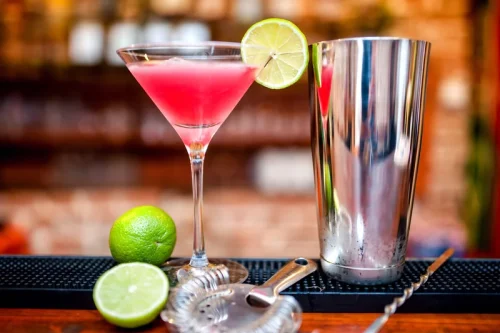101 Science and Health Myths Debunked

It will have severe effects on the body, which can eventually be fatal if nothing is done to treat the problem. There are many alcohol detox programs available that can help you safely and effectively withdraw from alcohol and start your journey toward recovery. When it comes to addiction, seeking help is a sign of strength, not weakness. Take our short alcohol quiz to learn where you fall on the drinking spectrum and if you might benefit from quitting or cutting back on alcohol. However, a review of studies published from 2013 to 2019 suggests that people with lower socioeconomic status may be more likely to die from alcohol use disorder. You may think that drinking can help alleviate pain, but evidence suggests that chronic drinking can worsen pain levels.

MYTH: Beer before liquor, never sicker; liquor before beer, you’re in the clear.
Caffeine will make you feel more “alert.” But you’re only going to be a more alert drunk person. While a person may prefer one type of drink over another, once alcohol reaches your bloodstream there’s no difference. This study looked at alcohol consumption and its effect on human beings in 195 countries from 1990 to 2016.
Myths about alcohol and alcohol use disorder
It involves an inability to control your alcohol consumption, regardless of its negative effect on your life or health. If you drank alcoholic beverages the night before, the foremost thing you must do when you wake up is drink a glass of water. You’ll undoubtedly be more comfortable, but there’s also an excellent possibility that any remaining hangover symptoms will vanish. For decades, studies indicate more young folks aren’t drinking or waiting for their first drink. The 2016 National Drug Strategy Household Survey revealed that 82% of year-olds avoided alcohol.
- But as recent research has shown, alcohol likely has zero health benefits, and the studies that purported that it does used flawed data.
- Many people turn to alcohol as a coping mechanism for their struggles, but not everyone becomes dependent.
- It’s important to have a sober network of people who will not put him or her on a harmful path of self-destruction.
Alcohol Harms The Brain Cells
The more accurate expression would be « feed a cold, feed a fever. » And make sure to drink plenty of fluids. « There is no evidence that drinking in a particular order alters how sick you get, » Julia Chester, a behavioral neuroscientist at Purdue, told NBC. One time the cyclists got flat water, another time carbonated water, yet another sugar water, and during a final trial everyone drank carbonated sugar water. « Most of the time when we’re outside in the cold, we’re clothed, » Dr. Richard Ingebretsen told WebMD Magazine.

However, this attitude may contribute to many myths about alcohol and alcohol use disorder. If you or someone you know is struggling with alcoholism and needs guidance and support in their recovery journey, reach out for help. The Retreat offers myths about alcoholism a non-clinical, mutual-help approach to the problem of alcohol and drug dependency. This supportive, educational setting is grounded in the spiritual principles of AA. By providing a safe and supportive environment to study and practice these principles, The Retreat opens the door to a life of contented sobriety. It’s not just about enjoying a cold one with friends or having an occasional drink at a party – oh no!
MYTH: Being cold can give you a cold.

Alcoholism, also known as alcohol use disorder (AUD), is when someone has an unhealthy relationship with alcohol and becomes dependent on it. Although having a few drinks before bed could help you fall asleep quicker, never presume you’ll sleep better. After drinking, you could feel not only a hangover but also nauseous and struggle to sleep well due to the impact of alcohol on deep rest. In fact, alcohol can make sleep worse and menopausal symptoms like hot flashes and night sweats more pronounced. Consuming alcohol during menopause can also increase the risk of heart disease and osteoporosis, says Dr. Jewel M. Kling, M.D., M.P.H., a physician with Mayo Clinic Women’s Health in Arizona.

Alcohol use disorder resources
- Receive free access to exclusive content, a personalized homepage based on your interests, and a weekly newsletter with topics of your choice.
- Taking acetaminophen with alcohol, for instance, increases your risk of liver failure.
- Since consuming alcohol is such an accepted (and sometimes even encouraged!) habit, it’s no surprise that there are prevalent myths and misconceptions about the health of this substance.
- This myth can especially be harmful if it causes you to drink more than you can handle — so always pay attention to the alcohol content in your drinks and be honest with what your body can manage.
Some studies have even shown an association with higher overall mortality, and while that doesn’t mean that milk consumption itself was responsible, it’s certainly not an endorsement. This is an incredibly successful bit of advertising that has wormed its way into our brains and policies to make milk seem magical. Experts say that instead, the carbs, alcohol, and general size of the turkey-day feast are the cause of those delicious holiday siestas. Cheddar cheese has even more than turkey, yet cheddar is never pointed out as a sleep inducing food. Shannan Younger is a writer living in the western suburbs of Chicago with her husband and teen daughter.
